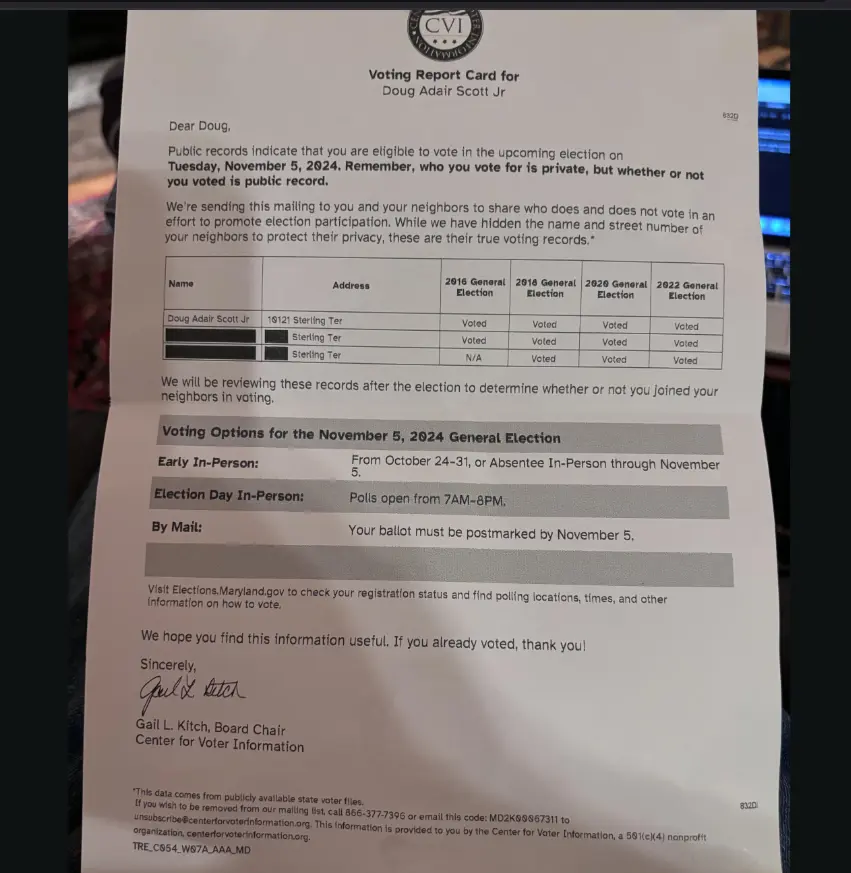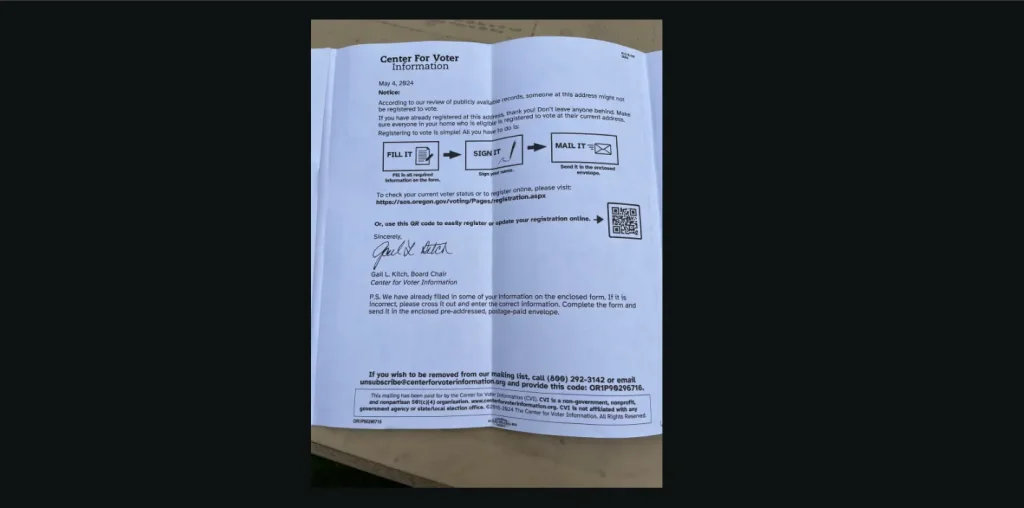Recently, many people in the U.S. have received unexpected mail from the Center for Voter Information (CVI) urging them to register to vote.
These mailers often look official, similar to government documents, and may even come with pre-filled registration forms.
If you’re already registered, getting these could feel confusing or a bit unsettling.
Naturally, this leads many to question if CVI is trustworthy.
This article explains what the Center for Voter Information is, whether it’s a scam, and why they use these methods, helping you decide if you should trust them.
What is the Center for Voter Information?
The Center for Voter Information (CVI) is a nonprofit that aims to get more people to register and vote.
Unlike a government agency, CVI is a private group and not linked to any official election office.
Their main goal is to encourage more people, especially in groups with low voting rates, to participate in elections.
To do this, CVI uses public voting records to reach out to potential voters.
Sometimes, they even include voter report cards, showing the voting activity of neighbors, to encourage people to vote.
Because CVI’s mailers can look like government forms, they’re often mistaken for official documents. The forms they include are pre-filled to make it easy for new voters to sign up.
But the Ohio Secretary of State and other officials have clarified that CVI is not a government office. You can always get official voting information from your state’s election office.
Some of the information from CVI has also been outdated or incorrect, sometimes going to people who are already registered or sent to wrong addresses.
While CVI’s intentions may be good, these issues have made people question its methods.

Our Review
The Center for Voter Information is not a scam, but the way they operate raises questions about their approach.
Using public records to send reminders can feel like an invasion of privacy, especially when they include voter report cards comparing your voting history with neighbors.
Some see this as a reminder to vote, while others feel it’s too pushy.
CVI’s goal is to boost voter turnout, particularly among groups that usually don’t vote as much. This can be a positive thing, especially for democracy.
However, their methods, like mailers that look official, can cause confusion. Many who are already registered feel these mailers are unnecessary or even misleading.
The suggestion that your voting activity is being tracked can make some people uneasy and may even hurt trust.
In the end, CVI is a legitimate organization that wants to get more people involved in voting.
But if you’re unsure about their mailers, you’re better off getting voter registration forms directly from your local election office or official websites.
What to Do If You Think You’ve Been Scammed
If you feel misled or think your personal information has been misused, here are steps to take.
First, reach out to your local election office to check your registration status. They can confirm if you’re registered and update any necessary details.
Also, report any misleading communication to your state’s election office to help keep others safe.
It’s also a good idea to keep an eye on your personal information. Check your voting and personal records regularly to spot any mistakes early.
If you think your information has been misused, consider identity theft protection to secure your data.
Being proactive can help you stay safe when dealing with unexpected requests for personal information.
Lipozem is sold as a “natural” supplement that uses turmeric, a spice known for its health benefits, especially in Indian and Asian food.









6 Comments
Pingback: LumiHeat Heater Review: The Truth Behind This "Revolutionary" Heater! - LegitRant
Pingback: Kivus Lipozem Keto Capsules Keto Review: Is It Legit? - LegitRant
Pingback: SOHO Mode Review: Is This Site Safe for Your Fashion Shopping? - LegitRant
Pingback: Kouvr Fashion Review: Does It Worth Your Money? - LegitRant
Pingback: JCPenney $2.99 Sale Scam Exposed: Important Things You Should Know - LegitRant
Good answers in return of this matter with firm arguments and telling all regarding that.